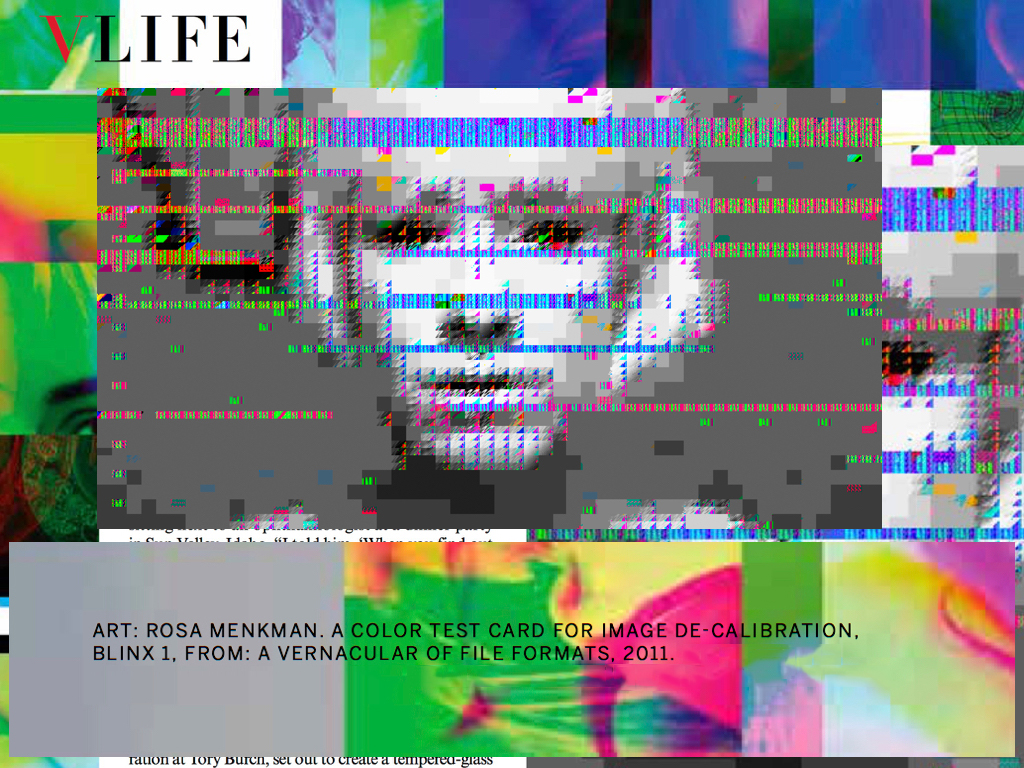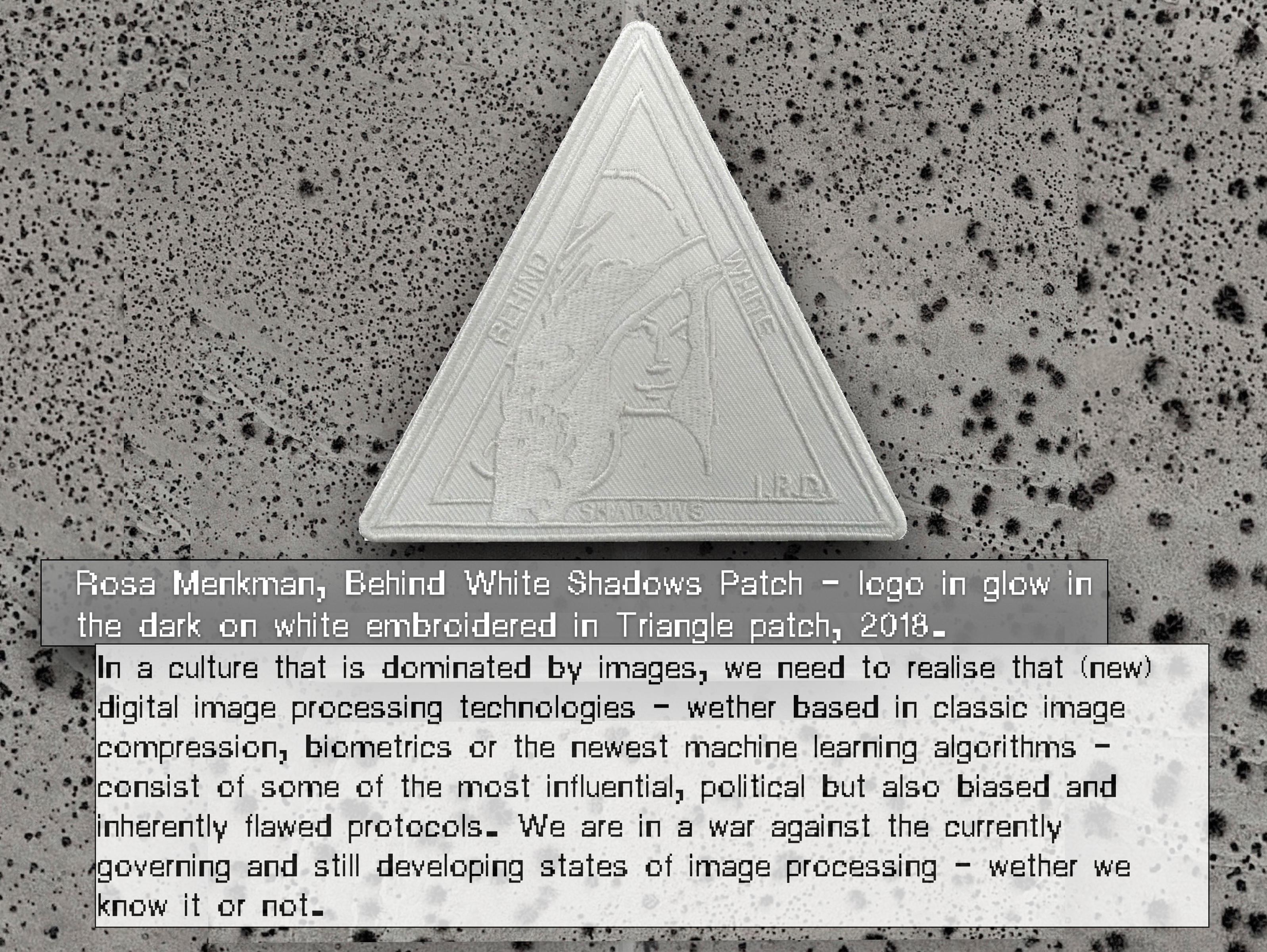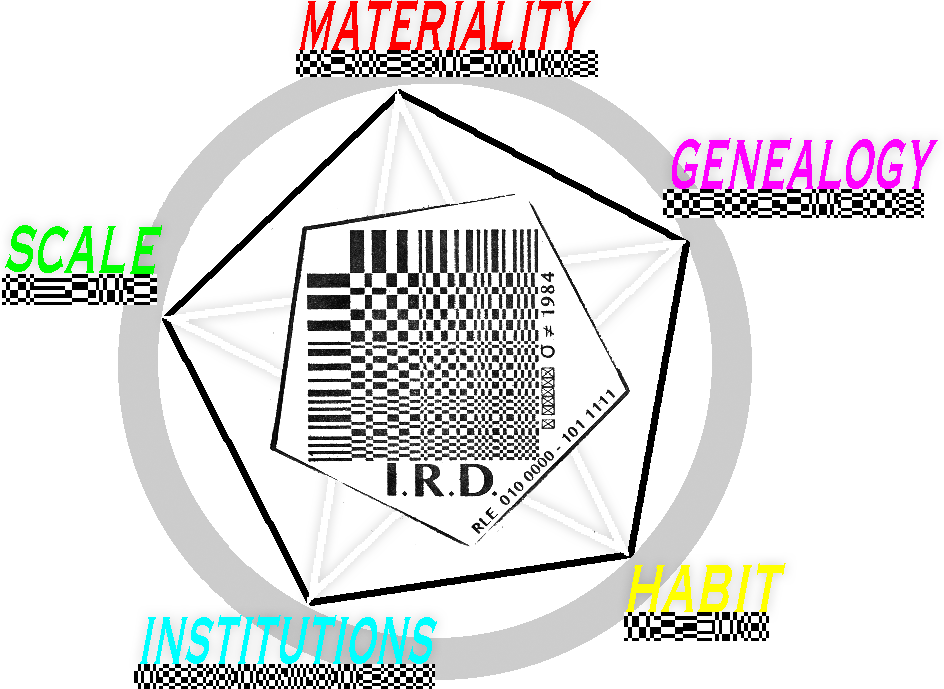
The jpeg image compression technology is one of the most archaic, but at the same time most contemporary artifacts from the realm of image processing. The algorithm still - since its release in 1992 - absolutely dominates the field of image compression, while its basis - the DCT algorithm - is also used in other compression technologies.
Besides the DCT algorithm, the JPEG technology also gave light to a color test card called “Lenna”. It’s this image and its history that I focus on in the essay “Shirley, Lenna, Jennifer and the Angel of History” - in which Lenna is just one caucasian lady in the history of color test cards - others such as Shirley and Jennifer - have similar stories.
Lenna, a naked model originally featured as Playboy centerfold in 1972 now serves as a test image to tune and test all kinds of image technologies - often without permission or accreditation. This history of multiplication, objectification, the loss of face and name and finally the becoming of a vehicle for the implementation of racially biased image processing algorithms is a story that needs to be told. A story that - even though we should know better - still seems exemplary for contemporary image processing technologies.
I came across the story of Lenna when I was invited to tell my own story of losing my face to the internet - losing an image produced in 2010, but which, through its many copies and appropriations no longer seemed to belong to me. In this way I experienced how strange it can be when your face becomes “just pixels”.
Last June I was asked to lend the image to Vogue (the magazine). I took this as an opportunity to reclaim the image in the only way I could imagine possible - by renaming the portrait formally known as “Blinx (from a Vernacular or File Formats)” to “A Testcard for De-calibration”. With this small, probably to most invisible action, I wish to call out the discourse of color test cards and promote the consideration and creation of alternatives.
We are at war with image processing technologies - a war that takes place on many levels; the way in which images are produced, the biased ideologies they internalize, the levels of (fake) reality they offer us but also all the parts of reality they do not capture and the economies they sustain.

And every war needs a patch,
So we can show what side we are on!



No comments:
Post a Comment